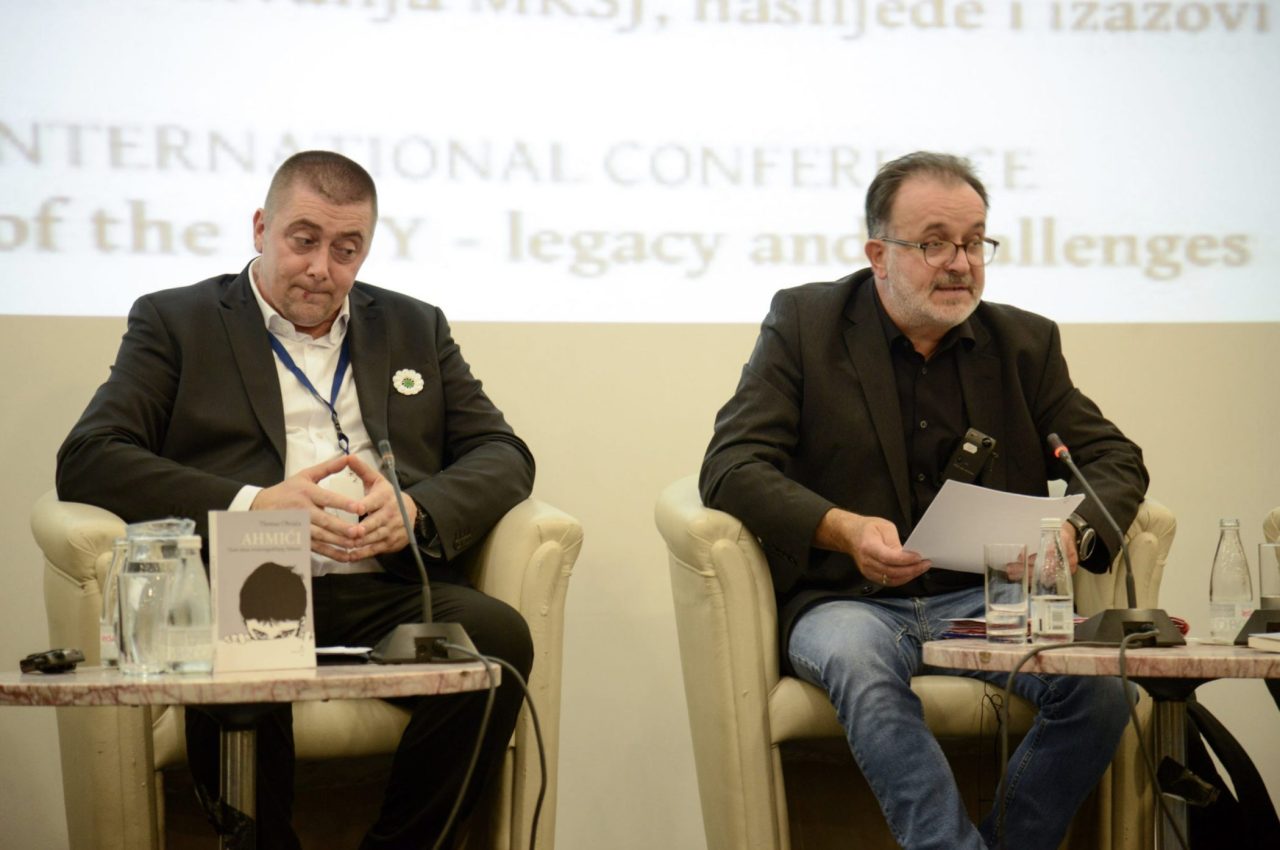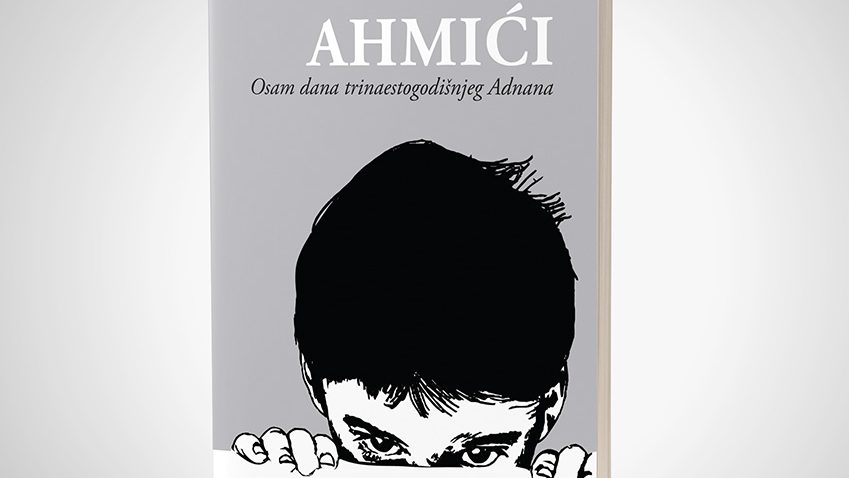This post is also available in: Bosnian
Thomas Obruca first encountered the story of 13-year-old Adnan Zec when working as an investigator on the case against Miroslav Bralo, a wartime member of the Croatian Defence Council, HVO, convicted later of involvement in the Ahmici massacre in central Bosnia in 1993.
During the HVO’s attack on the mainly Bosniak village of Ahmici on April 16, 1993, Adnan witnessed the murder of his parents and 11-year-old sister from a distance of metres – but survived.
Obruca, who comes from Austria, was working as an investigator for the International Criminal Tribunal for the Former Yugoslavia, ICTY, in The Hague at the time.
He said that the brutality of the crime in Ahmici, which he learned about through court files, deeply shook him.
“It was an experience that made me ask myself: how is it possible that this happened? How can neighbours kill one another?” Obruca told BIRN in an interview ahead of the anniversary of the massacre.

Adnan Zec and Thomas Obruca. Photo: ahmici.com
It has been estimated that the HVO killed 116 Bosniak civilians, including women and children in Ahmici. As well as killing people, 169 houses and two mosques were destroyed.
“Reading all these statements and documents, I’ve asked myself many times: what drives people to commit such crimes? Hasn’t humanity learned anything from history?” Obruca asks.
Obruca now works at the Austrian Interior Ministry. But Adnan’s story stayed with him long after he left the Hague Tribunal.
“On the one hand, it’s the story of a 13-year-old boy. It’s his personal tragedy. But if you think about the war in the former Yugoslavia, his story represents thousands of other children and victims,” he said.
Obruca’s book, Ahmici: Eight Days of the 13-year-old Adnan, which was published in English and German in 2023 by Austrian company Bibliotek der Provinz, retold the horrifying story.
“I see this book as if Adnan is some kind of ambassador or voice of those many victims and children, because his story represents many other destinies,” he explains.
Countering the narrative of denial

Book cover “Ahmići. Osam dana trinaestogodišnjeg Adnana”. Photo: Buybook
In 2017, Obruca and Adnan visited Ahmici together and revisited the survivor’s memories of April 16, 1993.
Long interviews, emails and telephone conversations followed. They exchanged questions, prayers, memories and silences. Obruca recorded everything.
“The approach I took with Adnan’s story was to tell all the horrors of war. Because we were all children once. Anyone can place themselves in his mind and ask: ‘how would I react?’” he said.
The book documents the eight days that the boy spent after the massacre, before he was rescued, recalling his parents’ last words, struggling with injuries, infection and fear.
“Imagine that you are 13 years old, badly wounded, not knowing if you will survive. You are afraid the HVO soldiers will find you. You see your family dead in front of you for five days. You don’t know what’s going on out there,” Obruca said.
“What if you survive? Millions of thoughts must have been running through his head. That’s what I tried to show in my writing,” he added.
Through the story of Adnan, the book shows the broader context of the crime. It includes judicially established facts from relevant cases that were prosecuted at The Hague for the crimes in Ahmici.
“A lot of people still don’t know what really happened in Ahmici on April 16, 1993. That is why I decided to provide an overview of the main perpetrators and the work of the Tribunal. I used the database of the International Criminal Tribunal for the Former Yugoslavia and its archives,” Obruca explains.
“Although I am not a historian, I tried to find a balance between documenting and avoiding analysis. My goal was for the reader to come to their own conclusion about whether justice was served,” he says.
The ICTY handed various HVO fighters heavy sentences for the Ahmici killings.
Dario Kordic was sentenced to 25 years in prison for crimes committed in central Bosnia, including in Ahmici; Miroslav Bralo to 20 years; Vladimir Santic to 18 years and Drago Josipovic to 12 years. Bosnia’s state court sentenced Pasko Ljubicic to ten years in prison.
In the book, Obruca also addresses the fact that few of the perpetrators have shown genuine remorse, and some people still deny the crimes.
“My goal is to correct the narrative – so that there are not two versions of the same story,” he said. “Because today, on one street, two ethnic groups have two versions of [what happened on] the same day. My goal is to reach an acknowledgement [from the deniers]: ‘Yes, we were wrong.’”
